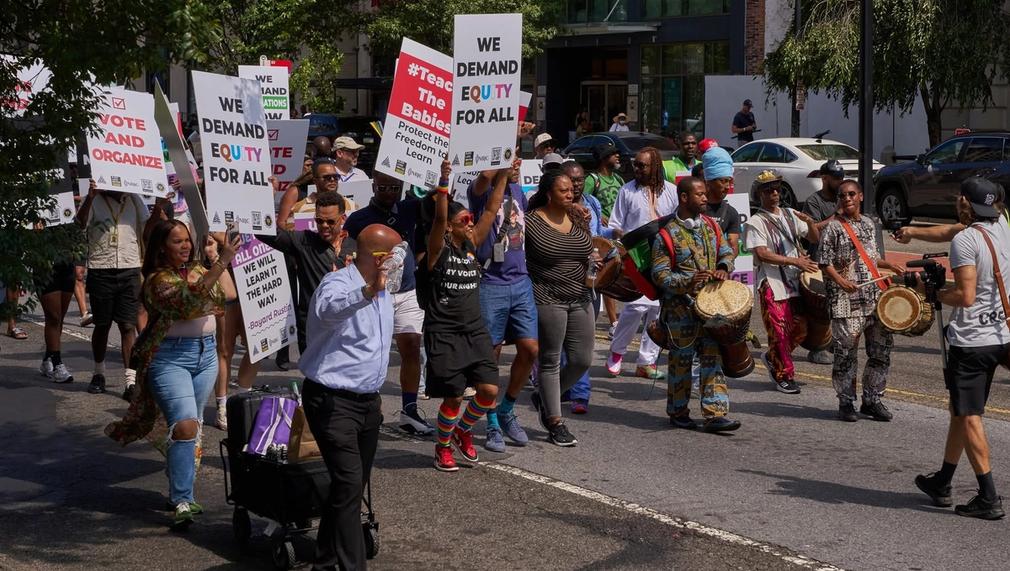Re-envisioning Income Equity and Reparative Freedom
In June 2026, United by Equity will host its 3rd annual Equity Week, taking place in Washington, D.C. This initiative will select a cohort of Angelenos to participate in comprehensive policy and advocacy training in preparation for the event. Participants will acquire essential skills to educate their communities on reparations, analyze policy effectively, and engage in public policy advocacy, empowering individuals and fostering informed discussions around equity and social justice within their neighborhoods.

What is the primary issue area that your application will impact?
Income inequality
In which areas of Los Angeles will you be directly working?
South LA
In what stage of innovation is this project, program, or initiative?
Pilot or new project, program, or initiative (testing or implementing a new idea)
What is your understanding of the issue that you are seeking to address?
The history of slavery has had a profound and lasting impact on income equality in the United States, particularly between Black and White Americans. The forced labor and systemic oppression of enslaved people created a deep-seated racial wealth gap that persists today. The legacy of slavery continues to shape racial inequality in various ways, including education, access to opportunities, and economic mobility. Monetary payments, settlements, educational initiatives, land-based compensation, or systemic reforms are paths toward economic reparations. The issue of reparations remains a highly debated and politically complex topic. While many Black Americans support reparations, national public support remains limited. Reparations for Black Americans, addressing the historical injustices of slavery and its ongoing legacy, are often presented as a path towards broader societal equity.
Describe the project, program, or initiative this grant will support to address the issue.
Addressing these inequalities requires multifaceted solutions, including reparations, legislative actions, and investing in systems-impacted youth who have been affected by the history of slavery. United by Equity (UBE) engages foster and system-impacted youth to empower them ahead of Equity Week, equipping them with advocacy skills and improving their personal and professional relationships. This includes support for H.R. 40, a vital bill aimed at establishing a federal commission to study the lasting effects of slavery and racial discrimination on Black Americans and consider potential reparations. With the expertise of UBE staff, Angelenos in the cohort will play a key role in fostering national public support, illustrating how reparations can promote a more equitable society for all communities that have been historically and presently marginalized. Participants will gain hands-on experience in civic engagement and healthy community relations, which are crucial for achieving economic equity because they foster a more inclusive and equitable society where everyone has the opportunity to thrive. By increasing participation in decision-making, advocating for policies that address disparities, and building relations, members of this initiative will influence systemic changes that improve economic outcomes for all, including residents of Los Angeles County.
Describe how Los Angeles County will be different if your work is successful.
Los Angeles unveiled a 400-page reparations report in 2024, documenting the struggles of Black Angelenos from 1925 to the present. Twelve types of harm were noted in the report, including stolen labor and opportunity, and the wealth gap. Though this report exists and a Reparations Advisory Commission was established in 2021 as a Blue-Ribbon Task Force, the City of Los Angeles has not issued a reparations program nor a call for claims or eligibility. By empowering Angelenos to understand the history of economic inequities in today's society and equipping them with leadership skills to educate and activate their communities, Los Angeles County will begin to see an influx of advocacy from different neighborhoods that are invested in redressing the social landscape for their people.
Approximately how many people will be impacted by this project, program, or initiative?
Direct Impact: 25
Indirect Impact: 125